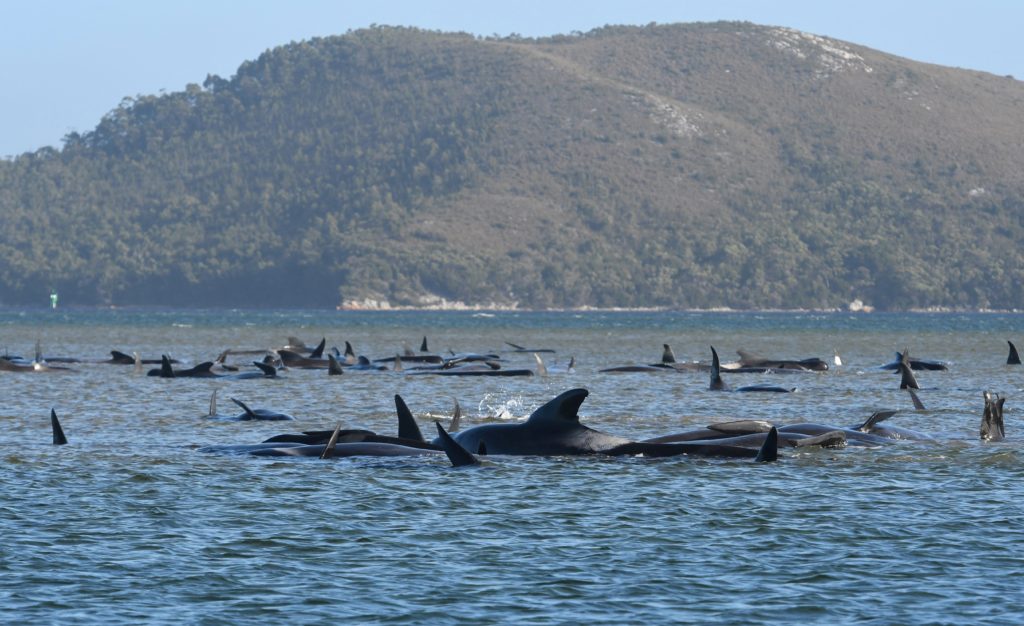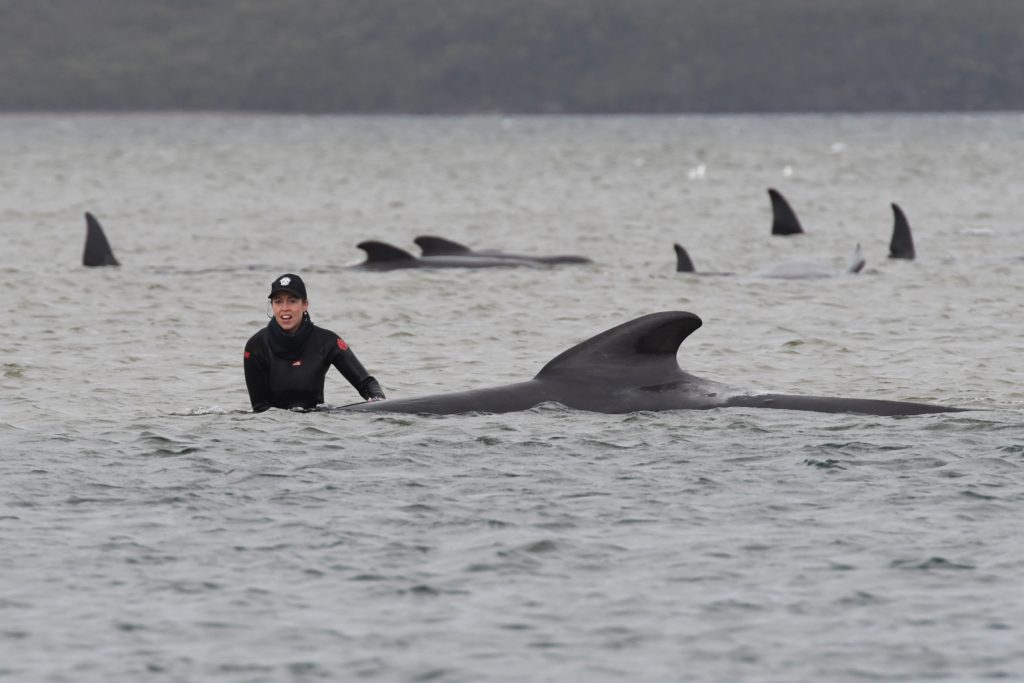AT LEAST 380 whales have been confirmed dead after a mass stranding in southern Australia.
Rescuers have been pouring in trying to save the huge pod, which became trapped in the shallows waters just off the coast of the island of Tasmania on Monday.
Despite best efforts from rescue teams, 90 long-finned pilot whales had died yesterday, with hundreds more still stranded in shallow waters.
Tasmania's Parks and Wildlife Service manager Nic Deka today confirmed that, sadly, at least 380 whales have now perished.
"We have got a more accurate count and we can confirm that 380 whales are dead," Mr Deka said, admitting the tragic incident was emotionally draining.
"There's around 30 left still alive but the good news is that we have saved 50."
 A pod of whales stranded on a sandbar in Macquarie Harbour on the rugged west coast of Tasmania. Scientists said two large pods of long-finned pilot whales became stuck on sandbars in Macquarie Harbour, on Tasmania's sparsely populated west coast. (Photo by - / POOL / AFP) (Photo by -/POOL/AFP via Getty Images)
A pod of whales stranded on a sandbar in Macquarie Harbour on the rugged west coast of Tasmania. Scientists said two large pods of long-finned pilot whales became stuck on sandbars in Macquarie Harbour, on Tasmania's sparsely populated west coast. (Photo by - / POOL / AFP) (Photo by -/POOL/AFP via Getty Images)It's unknown what exactly causes whales to beach themselves like this, and while individual beaches are far from rare, this mass stranding is believed to be the biggest in Tasmanian history.
Whales are social creatures and form strong bonds with each other, so if one gets stranded or gets into trouble, others in the pod often come to investigate and help. This could be one cause of a mass beaching like this.
A group of 60 conservationists, experts and fishermen are now fighting to save the remaining whales, with rescuers braving cold waters to reach the animals.
 STRAHAN, AUSTRALIA - SEPTEMBER 22: Marine rescue teams attempt to help save hundreds of pilot whales stranded on a sand bar on September 22, 2020 in Strahan, Australia. (Photo by Brodie Weeding/The Advocate - Pool/Getty Images)
STRAHAN, AUSTRALIA - SEPTEMBER 22: Marine rescue teams attempt to help save hundreds of pilot whales stranded on a sand bar on September 22, 2020 in Strahan, Australia. (Photo by Brodie Weeding/The Advocate - Pool/Getty Images)According to RTÉ News, some of the whales saved yesterday re-stranded overnight-- something which was predicted by whale behavioural experts-- but rescuers are still hopeful that some can be saved.
The search and rescue expedition has been expanded by over 10km in order to identify if there have been further strandings elsewhere in Tasmania.
"As time goes on they do become more fatigued so their chances of survival reduces," Mr Deka said of the long-finned pilot whales.
"But we'll keep working as long as there's live animals at the site."

